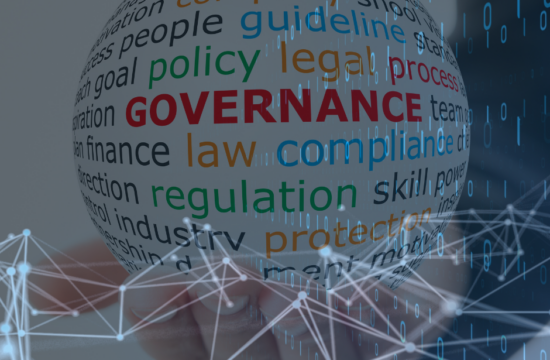The California Privacy Rights Act (CPRA) is the replacement of the much-discussed CCPA, which will come into effect in 2023. The CPRA is significant for businesses as it tightens up regulations and sets out heavier fines for those who fail to comply with the act. This blog post closely examines what business organizations need to know about the CPRA and how they can avoid CPRA fines. But before that, let’s decode the CPRA.

Decoding CPRA
The CPRA is a new set of laws that came into force in 2023, replacing the California Consumer Privacy Act (CCPA). CPRA grants Californians additional privacy rights and gives businesses more clarity. It requires companies to follow some extra steps while handling personal user data.
Under the CPRA act, consumers have the right to access their personal data, delete the same, and opt out of selling their personal information. CPRA also gives consumers more control over their data by allowing them to correct any inaccurate information. CPRA has also given additional rights to minors and requires companies to have an age verification process in place before collecting data from them.
CPRA is a landmark legislation that strengthens consumer privacy rights and gives businesses more clarity in their data collection practices. However, the CPRA also sets out heavier fines for those who do not comply with the act, making it all the more important for businesses to ensure they are CPRA-compliant before 2023. Earlier with CCPA, the fines were limited to $2,500 per violation and $7,500 per intentional violation. However, with the CPRA, fines have been increased to $7,500 per violation, even if the violation is intentional or unintentional.
In addition to the increased fines, CPRA requires businesses to obtain consumer consent when collecting personal information. This means that businesses must clearly explain how they are going to use consumer data and ensure consumers give their explicit consent.
CPRA Compliance– What Businesses Need to Know
Businesses need to familiarize themselves with CPRA and take steps to ensure they are CPRA compliant. Here are certain things businesses should consider when preparing for CPRA compliance:
– Data Transparency: CPRA requires companies to provide clear and accessible information about their data collection practices. Companies should ensure they have an up-to-date privacy policy in place that is easily accessible and outlines the types of personal data collected, how it will be used & who will have access to it.
– Data Rights Management: CPRA requires businesses to provide clear information regarding consumer rights, such as the right to access and delete their data. Companies should ensure they have processes that enable consumers to easily access and delete their data.
– Data Minimization: CPRA requires companies to collect only the minimum amount of personal data necessary for the purpose it was collected for. Companies should ensure they do not collect unnecessary data and have a process in place to delete any outdated or irrelevant personal data.
– Data Security: CPRA requires businesses to take adequate measures to protect the personal data they collect. Companies should review their security measures regularly and ensure they are up-to-date with the latest security technologies and procedures.
– CPRA training: CPRA requires businesses to educate their employees about CPRA and its associated laws. Companies should ensure their staff are adequately trained on CPRA compliance so they understand the importance of protecting personal data in an effective manner.
– CPRA fines: CPRA imposes hefty fines for non-compliance. Companies should ensure they do not fall foul of the law and ensure they comply with CPRA regulations.
Overall, the CPRA is a landmark legislation that strengthens consumer privacy rights and gives businesses more clarity in their data collection practices. It is crucial for businesses to familiarize themselves with CPRA and take steps to ensure they are compliant with the law before 2023.
The CPRA Fines
The CPRA fines associated with non-compliance make it all the more important for businesses to ensure they are CPRA-compliant before 2023. Companies should review their associates with non-compliance makes it all the more important for businesses to ensure they are CPRA-compliant before 2023. Companies should review their data collection and management practices, take adequate measures to protect consumer data, and educate their staff about CPRA compliance.
In addition to the increased fines, the CPRA also requires businesses to obtain consumer consent when collecting their personal information. This means that businesses must clearly explain how they are going to use consumer data and ensure consumers give their explicit consent.
It is important for businesses to take steps towards CPRA compliance in order to avoid hefty fines, which can be up to $7500 per violation (whether intentional or unintentional).
Precisely, here are the smart tips to comply with CPRA and avoid CPRA fines:
– Create a privacy policy: It is essential for businesses to create an up-to-date, easy-to-read and accessible privacy policy that clearly outlines the type of data collected, how it will be used and who has access to it.
– Educate employees: Businesses should ensure their staff are adequately trained on all aspects of CPRA compliance and clearly understand the importance of protecting consumer data.
– Obtain consumer consent: Businesses must obtain consumer consent when collecting their personal information and explain how they intend to use the collected data.
– Implement data security measures: Companies should ensure they have adequate data security measures in place and review their security protocols regularly.
– Review GDPR compliance: Businesses should review their GDPR compliance to ensure they are up-to-date with the latest data protection regulations, as many of these will apply to CPRA as well
– Regularly Monitor data collection practices: Companies should monitor their data collection practices regularly to ensure they are collecting only the necessary data and delete any outdated or irrelevant personal data
– Encrypting sensitive information: Businesses should encrypt all sensitive data to protect it from malicious access
– Audit data collection process: Companies should audit their data collection process regularly to make sure they are compliant with the CPRA and other relevant laws
– Use a data privacy solution: Businesses should use a data privacy solution such as Privacy Shield to help them stay compliant with the CPRA and other laws
By taking these steps, businesses can ensure they are in compliance with the CPRA regulations and avoid hefty fines in the future.
Ending Note
CPRA is a landmark legislation that strengthens consumer privacy rights and provides businesses with greater clarity on their data collection practices. CPRA fines can be as high as $7500 per violation (whether it is intentional or unintentional), so it’s essential for businesses to understand CPRA and take steps to ensure they are CPRA compliant before 2023. Businesses should focus on data transparency, data rights management, data minimization and data security to ensure CPRA compliance and avoid CPRA fines. By taking the necessary steps to become CPRA compliant now, businesses can protect their customers’ data and also safeguard their own reputations.
CPRA is a significant piece of legislation that will majorly impact businesses operating in California, so it’s essential to start preparing now. CPRA compliance should be a priority for all businesses to ensure they are CPRA compliant and protect their customers’ data, so make sure you take the necessary steps to become CPRA compliant before 2023.





